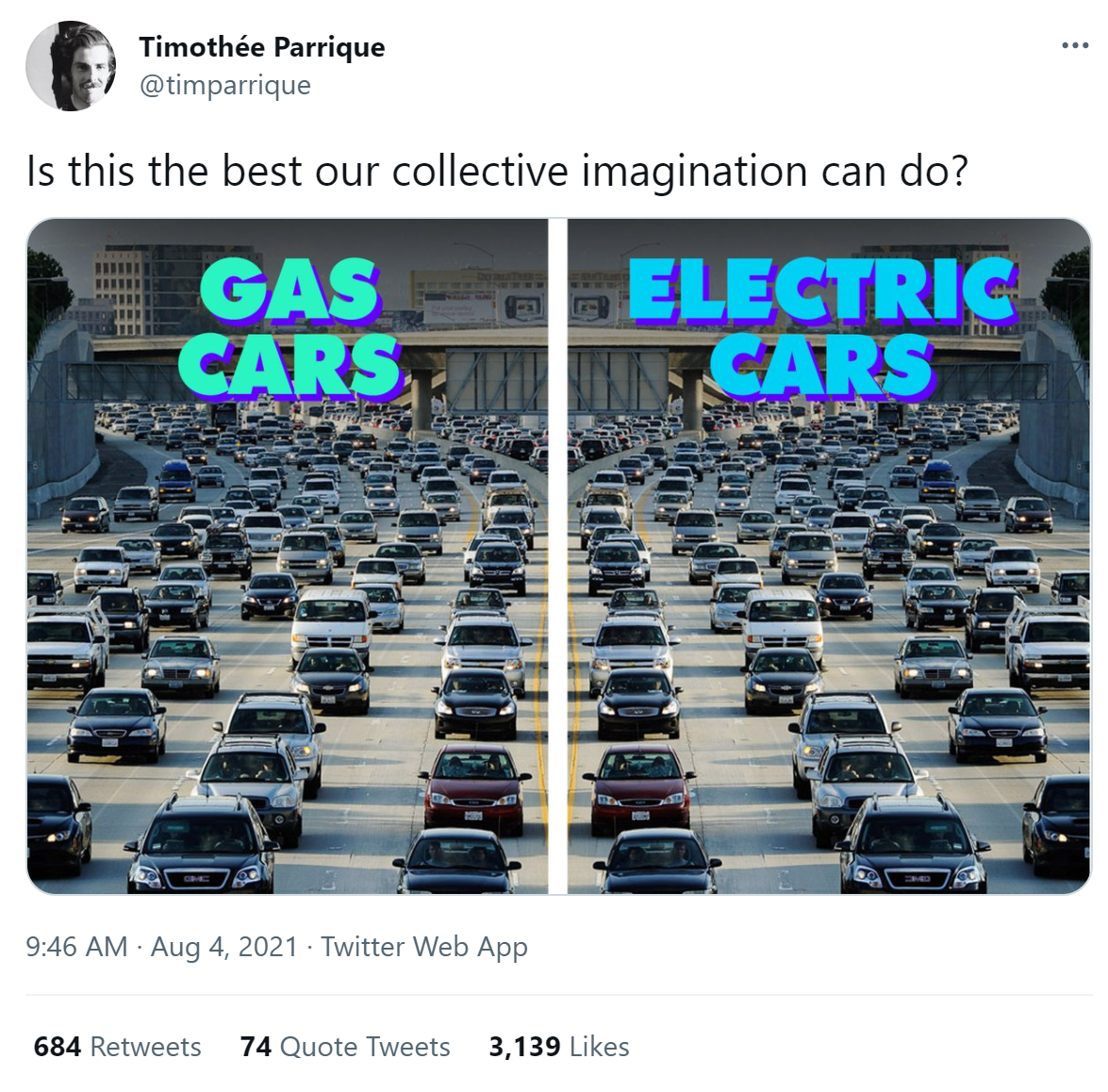In defence of partial climate solutions
I'd like to start this blog with a little sense check. Stop me when you disagree:
- -Banning coal is not a climate change panacea
- -Planting trees is not a climate change panacea
- -Carbon pricing is not a climate change panacea
- -Online learning is not a climate change panacea
- -Developing hydrogen is not a climate change panacea
- -Buying carbon offsets is not a climate change panacea
- -Eating veggie burgers is not a climate change panacea
- -Driving electric vehicles is not a climate change panacea
- -Signing the Paris Agreement is not a climate change panacea
- -Corporate social responsibility is not a climate change panacea
Still with me? Of course you are, because for all the talk about how various climate actions are not panaceas it’s damn near impossible to find anyone who thinks that anything is a panacea.
The ‘not a panacea’ hot takes are uninteresting and unhelpful
This classic strawman has bothered me for some time now, but lately I’ve been trying to understand why these headlines are approaching the “millennials are killing the ____ industry” level of absurdity and what motivation lies behind them.
My conclusion is that there are two different sources for the ‘not a panacea’ critique. The first is simply that there are so many content creators out there (journalists, NGOs, industry PR, academics, hobbyists) and everybody needs to have their own ‘hot take’ on the latest topic in the climate debate. Sadly for people who like a bit of spice, these hot takes are extremely mild. The ‘not a panacea’ critique gives the impression of a contrarian view without the burden of having to say anything remotely controversial.
These mild hot takes may seem innocent and harmless - and that’s largely true - but I think there’s a second, more sinister source. Presenting a seemingly contrarian view is not just useful as a hot take for content creators, it’s also an extremely useful way of presenting a climate action in a negative frame, in this case by highlighting inadequacy.
Sometimes these critiques come from people in the broader environmental movement that feel overshadowed by the attention on a particular form of climate action (choose any from the links above), or sometimes it’s people who oppose this form of climate action for other, non-panacea reasons. When the article “Banning coal is not the panacea for climate change” appears in the publication Mining Monthly, you have to ask whether the author is responding to a (illusory) claim than banning coal is a panacea or whether they just want some negative headlines about a form of climate action that they don’t want to (or can’t) engage with in a serious manner.
All climate solutions are partial solutions
The latest incarnation of the ‘not a panacea’ critique is to say that a particular form of climate action is a distraction from the real issue. As climate disasters and the latest IPCC report increase the intense pressure for serious emissions reduction the debate sometimes gets a bit testy with people working on different climate actions.
The good news, in my view, is that much of this conflict is completely unnecessary. Of course attention spans and financial investment are limited resources, but studies of environmental action reveal that progress on one issue actually increases support for others, even for the endless debate about individual action versus collective action. The idea that people have a limited budget of environmental concern that must be directed towards one single climate action was once an interesting provocation but has amounted to nothing more than that.
The issue I’m spending most of my time working on at the moment, electric cars, is attracting many of these hot takes, for example the claim that we(?) are ‘obsessed’ with EVs as a climate solution. The counterproductive nature of this critique should be obvious, but my question is why not just advocate for the issue you think should be focused on rather than playing into the hands of car makers that would love to continue to produce combustion engines for as long as possible?
I saw this on Twitter recently from Tim Parrique, a friend and one of the most engaging communicators I know. Here’s Tim’s tweet:

The implication seems to be that while electric cars significantly reduce greenhouse gas emissions, air pollution, and noise, they’re still cars after all and they don’t do anything about congestion, resource use, or physical health. Yeah, of course. To me this falls squarely into the uninteresting and unhelpful category. This inadequacy critique could also be made about any climate action — Tim’s degrowth policies included. Here’s one:

Honestly, I feel bad posting this graphic, but in case it’s not clear a 4 day week does not change power structures in the workplace, the perniciousness of the profit motive, or the banality of the work day. As always, there is a need for complementary policies.
How not to build a climate movement
It’s time to retire the ‘not a panacea’ talking point and the friendly fire in the environmental movement. Climate action shouldn’t have to reach a ridiculous bar of ‘solving climate change’ that nothing can possibly reach and few, if any, proponents would ever claim. It’s a trite observation, disingenuous about the position of advocates, and in the worst cases a calculated tactic to present a particular climate action in bed light.
Instead, tell us how your proposed climate action makes the world better. Even better, tell us how this climate action supports and reinforces other climate actions. That, in my view, is a much more promising strategy if we’re ever going to build a climate action plan from partial solutions.
